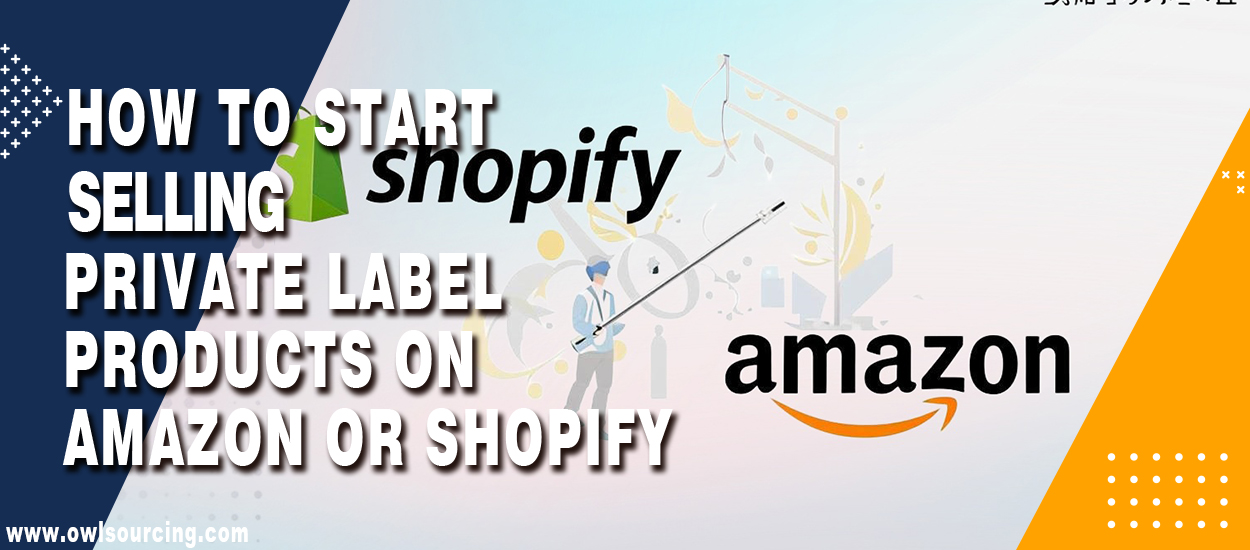Starting any business is challenging, but selling private-label products cranks it up. You need to find Chinese private label manufacturers and ship the products to customers.
If done well, you stand a chance of making a profit. But what does “doing well” entail? I will discuss tips for selling private-label products on both Amazon and Shopify. Stick around!
Understanding Private Label Selling on Amazon and Shopify

Before we discuss the steps to take before you can start selling private labels, what are they? The idea is simple. Private label products are successful items that are remarketed as yours. The products would have your logo, design, and custom packaging.
This form of e-commerce gives you brand control and market differentiation. Remember your favourite shoe brand? Imagine you have a similar design. However, instead of the well-known brand image, you put yours.
Now, you can sell the products on Shopify or Amazon. But I wish it were as simple as I had spelt out. Instead, the process demands several steps before you can start selling. Fortunately, this article addresses e-commerce private label strategies. Let’s get into it.
Steps to Start a Private Label Business on Amazon or Shopify
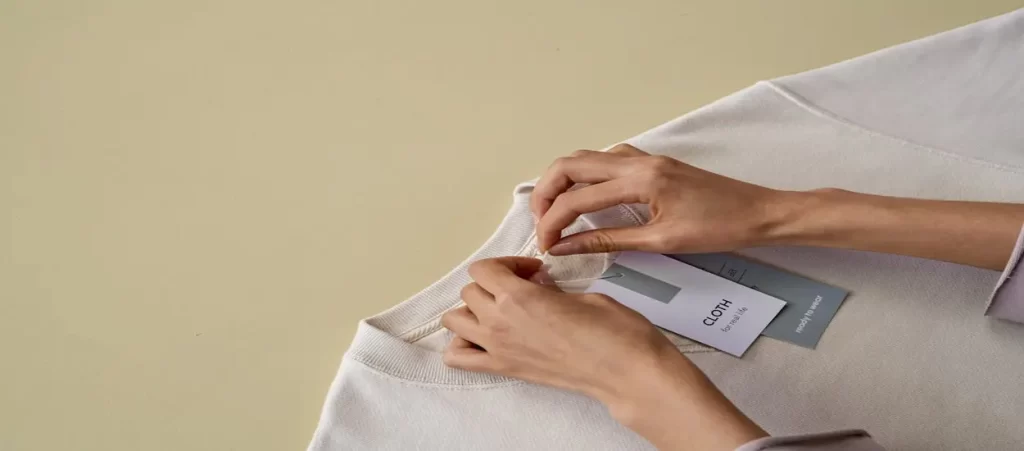
Selling private-label products online is easy once you know what to do. Here, we highlight the steps for both Amazon and Shopify sellers. This way, you know where to put your foot regardless of your chosen platform. Undoubtedly, both have their perks.
Step 1: Product Research
Deciding what product you want to resell is a crucial first step. To start the business, you need private-label product ideas for e-commerce. The product you choose is vital.
Does it have a thriving market? Is the market saturated? Proper product research sheds insights on these questions. It ensures you make an informed decision on choosing top products imported from China. You need a growing demand to make profits from this business.
| Tool | Features | Pros | Cons |
| Jungle Scout |
|
|
Can be costly |
| Helium 10 |
|
|
The user interface is not friendly |
| Keepa |
|
|
Limited features compared to others |
| SellerApp |
|
|
It can be difficult for beginners |
Use Helium 10 or Jungle Scout tools to find the best private-label products. These tools expose high-demand products with low competition.
Note the products/niches with growth potential. Analyse the competitors’ products. Read reviews and note pricing. This way, you can find ways to differentiate your products.
Step 2: Finding Private Label Manufacturers
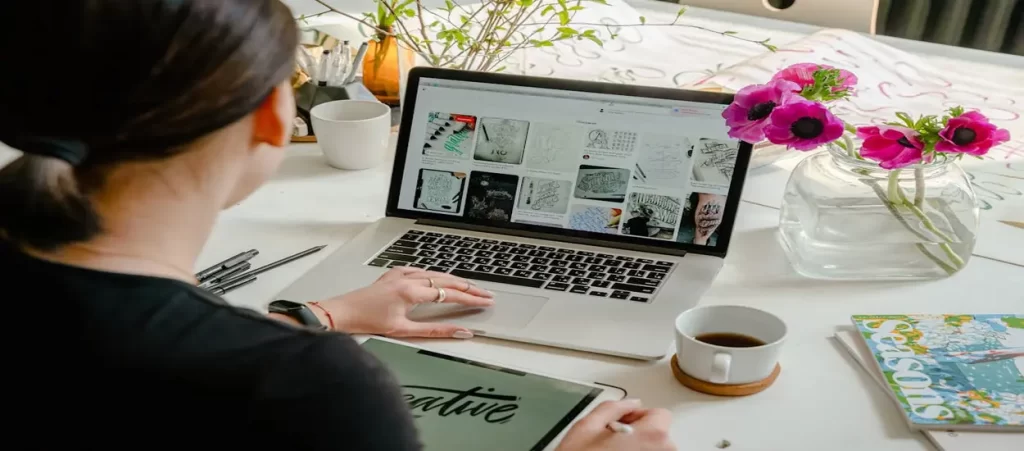
Connecting with the right supplier can be what separates you from the competition. But how to find China private label manufacturers?
Also, where to buy products to sell on Amazon?
Dealing with many businesses tells me this step can be demanding. However, there are ways you can go around it. To find suppliers, use platforms such as:
- Global Sources
- Alibaba (here read more about How to Source Products on Alibaba and Sell via Amazon FBA?)
- 1688
These platforms are home to thousands of reliable private-label suppliers offering custom products. You can connect with them regarding the products you want to sell. Nonetheless, there is a decent risk of scams from these platforms. I hope you already know about Alibaba scams.
Don’t worry! Here is how to spot good China suppliers from the bad ones:
1) Read reviews and ratings: Many of the platforms above have a rating system in place. Use these metrics to spot the good from the bad. I recommend you focus on personalised messages. Several suppliers often pay for reviews and ratings.
2) Get Samples: Ensure top-notch quality by requesting samples. Sampling allows you to gauge the supplier’s offerings.
3) Ask for recommendations: Ask accomplished stores on Amazon or Shopify how they connect with their suppliers. It can help you connect with yours.
You can also read one of my top posts – how to find Chinese private label manufacturers for Amazon FBA.
Searching for Reliable Private Label Manufacturers in China?
The correct private label manufacturer is key to the realisation of a successful product. At Owlsourcing, we match you directly with qualified Chinese factories experienced in private label production, whether you need cosmetics, electronics, home goods, or individually packaged products.
As an experienced China sourcing agent, Owlsourcing handles it all, from supplier sourcing and price negotiation to quality inspection and shipping. We cut through the noise of platforms like Alibaba and offer customised sourcing services that mirror your exact specifications, branding requirements, and compliance standards.
✅ Certified factory access
✅ Transparent pricing and factory audits
✅ Sampling to shipping, comprehensive support
We at Owlsourcing have completely transparent fees that are tied to your project needs. Whether you are looking to source products from China or develop unique private label products for Amazon or Shopify, we have a transparent pricing system with no hidden costs.
Our service fees are typically determined based on the complexity level of the project, order quantity, and involvement level needed, from supplier search and product development to quality check and shipping. You’ll receive an accurate quote in advance, so you’ll know exactly what to expect before you go ahead. This transparency lets you budget confidently and focus on building your brand.
Let us simplify your sourcing experience.
👉 Contact us today to start finding reputable private label manufacturers in China for your next product line.
Step 3: Branding and Design
Many sellers prefer to set up their designs when the product drops. However, you can take a proactive step before the product arrives. I recommend you take this route. You can design it yourself if you have decent experience.
Alternatively, you can hire a designer for new product development. It will help you plan designs for the incoming products. Ensure the designs are unique and do not resemble a trademarked design.
Step 4: Listing Your Private Label Products
While you wait for your products, you can start listing them on Shopify and Amazon. The secret to listing is keeping the descriptions original and compelling.
I often recommend that sellers upload product images, pricing, and descriptions. Ensure that the pictures are high-quality and follow engaging descriptions. If you are having difficulties, you can hire a third party to handle the process.
Step 5: Advertise the Products
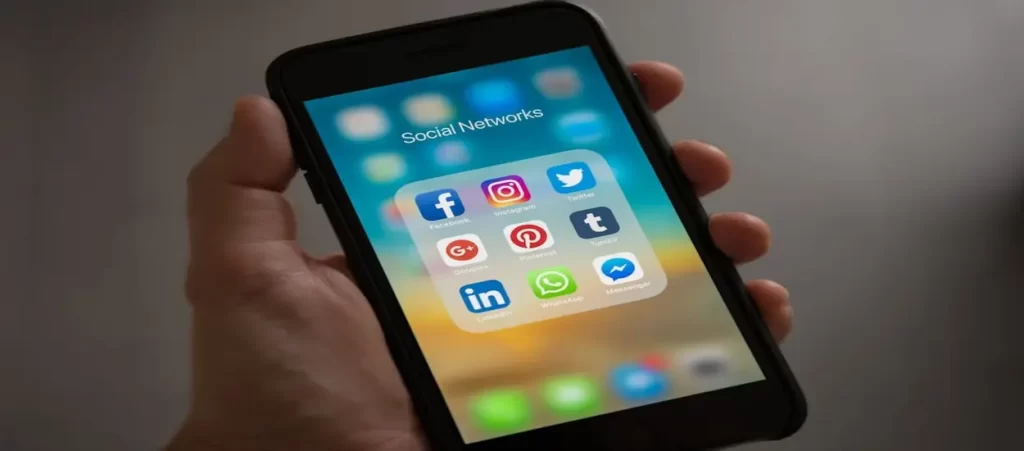
You need to let people know about your private-label products. Before your store starts generating income organically, it needs to push.
For Amazon, you can try Amazon PPC. You can use this advertising tactic to gain an edge. You should refer to the advert regularly to optimise it for the best responses. A dedicated Amazon private label guide ensures you get the advertising right.
Social media marketing can give you an edge as a Shopify seller. Use X, Facebook, and Instagram to upload your store’s products.
You can use Shopify tools to spot places for improvement in the ads. For both Amazon and Shopify, I recommend that you urge customers to leave reviews. This way, you grow your credibility.
Step 6: Order Fulfilment
When customers place orders, order fulfilment ensures they receive their products. If this step is skipped, it can lead to customer loss and a barrage of bad reviews. You can use the Amazon FBA to store, package, and ship your product as an Amazon seller.
Regularly monitor this process to ensure no delays or issues with order fulfilment. For Shopify, you need to find a logistics partner or global supply chain provider. It is the major difference between Amazon and Shopify.
Step 7: After-sales Support
Much research proves that repeat sales are one of the main factors that make a business fly. Hence, customer service is crucial, especially after a sale. It builds trust and, ultimately, brand loyalty.
Set up customer support channels like social media, email, and phone support. Analyse your customer reviews to optimise your products better.
Legal Considerations for Private Label Products
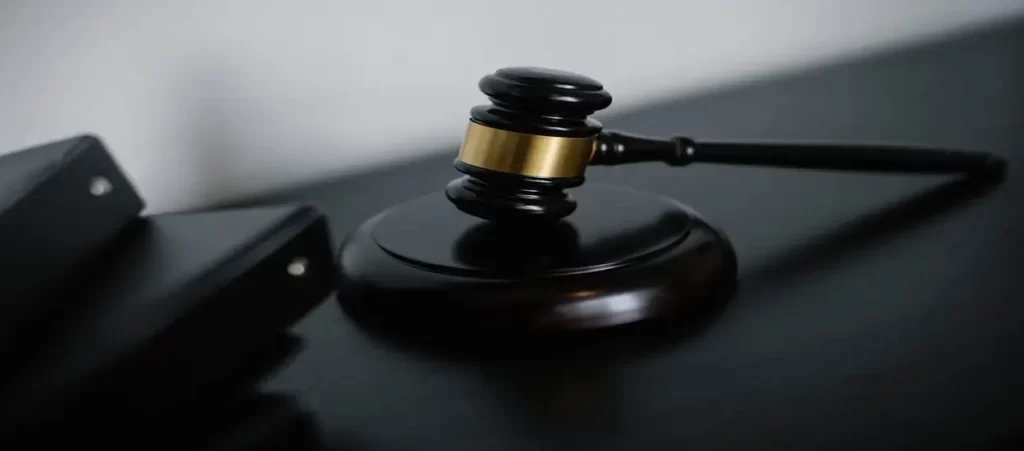
Image Source: Pexels
The private label business comes with a set of legal considerations. Here is a guide to ensure you are on the right side of things:
1) Trademark Protection
A crucial legal consideration is ensuring your branding is unique. If your design infringes on existing trademarks, it can harm your business. I can ensure this doesn’t happen by conducting in-depth research. Our sourcing agency offers a comprehensive trademark to safeguard your product’s brand identity.
2) Product Liability
Many of my clients deal with defective items from suppliers. As a private label business, you are liable for these faults. Hence, following the necessary safety standards and guaranteeing quality is crucial.
3) Regulatory Compliance
All products aren’t the same. I often have to spell this out. It is understandable how one can mix things up. However, the regulations that apply to sneakers don’t necessarily apply to underwear.
For instance, FDA guidelines apply to food and beverages. Similarly, the CPSC standards guard children’s products. My sourcing agency is fully equipped to work according to these regulations. Full compliance is crucial to avoid legal complications, and we can help you achieve it.
4) Labelling Requirements
Wrong labels can lead to legal issues. You need to provide precise information regarding the products. Wrong labelling can cause legal complications, especially with clothes and food.
5) Intellectual Property
Intellectual property rights are a common roadblock in this business. You need to secure the required copyright and patents for your packaging. It ensures your intellectual property is safeguarded.
Legal considerations are often ignored, leading many to lose their businesses. I know how it sounds. The process seems exhausting. Fortunately, you needn’t worry. Contact me today to get all your legal requirements sorted.
Where Should You Sell Your Private Label Products?
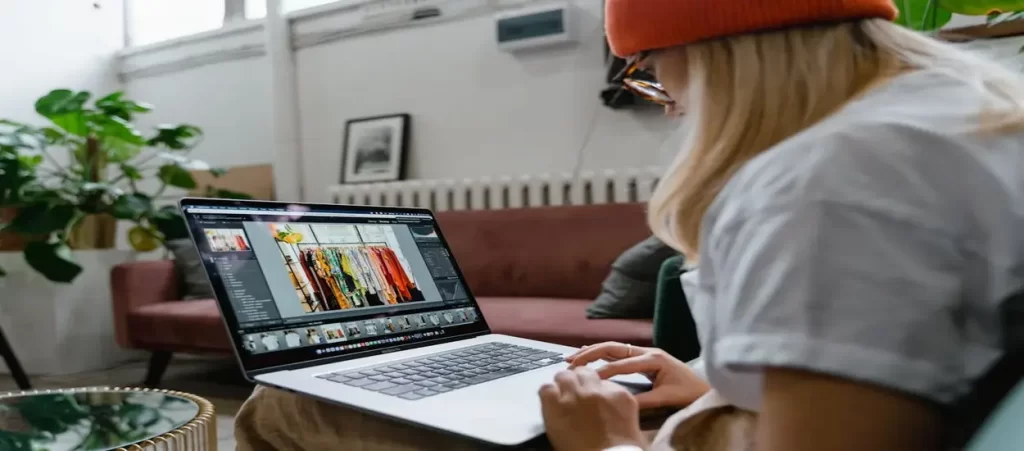
Shopify and Amazon are great places to set up your private label business. However, owning a private label business on either platform differs. Here is a table that compares both platforms to ensure you make an informed decision:
| Criteria | Amazon | Shopify |
| Order Fulfilment | Order fulfilment by Amazon (FBA) | Self-fulfilment or utilising a third-party logistics partner |
| Fees | High fees, including referral and FBA | Low fees, constituting monthly fees |
| Customer Base | Massive, immediate access to millions of possible customers | Requires building your customer base |
| Brand Control | Limited | Complete control over branding and store designs |
| Visibility | Gains from Amazon’s internal search traffic | Needs SEO and marketing to drive traffic. |
| Marketing Tools | Deals and Amazon PPC | Social media marketing and other options |
| Competition | High | Varies, but often less than Amazon |
| User-experience | Simplified | It can be complex to understand |
Each platform has its perks. Amazon is beginner-friendly, but Shopify gives you more control over your branding. I recommend you do further research before you start a private label business.
Selling private label products on Amazon and selling private label products on Shopify differ. You mustn’t enter with the mindset that they aren’t.
Best Options for Private Label Product Fulfilment
| Factor | Fulfilment by Amazon (FBA) | Self-Fulfillment | Using a Sourcing Agent |
| Inventory Storage | Amazon handles storage | Self-storage required | The sourcing agent may handle the storage |
| Packaging and Shipping | Amazon handles packaging and shipping | Self-packaging and shipping | The sourcing agent offers custom packaging and shipping from China |
| Customer Service | Amazon handles customer service | Self-handling of customer inquiries and returns | A sourcing agent may handle customer service |
| Costs |
|
|
|
| Scalability | Easily scalable with Amazon’s infrastructure | Requires more manual effort to scale | Can be scaled with the agent’s expertise |
| Control | Less control over branding and customer experience | More control over branding and customer experience | Moderate control, depending on the agent’s services |
| Expertise | Leverages Amazon’s expertise in fulfilment | Requires in-house expertise or outsourcing | Relies on the agent’s expertise in sourcing, quality control, and logistics |
As you can see, using a sourcing agent can be a suitable option for businesses. An agent can work on various aspects of the fulfilment process, including;
- Supplier finding
- Product Sourcing
- Quality control in China
- Logistics
However, it’s important to carefully select a reputable agent to import from China. Clearly define the required services to avoid potential issues.
An entrepreneur in the US wanted to launch a private-label skincare brand. OwlSourcing helped them source high-quality ingredients from reputable suppliers in China.
Our team also helped them design minimalist packaging. By using our expertise, they were able to launch a new brand successfully on Amazon.
Read More:
- Custom Packaging for Amazon FBA Private Label Product
- Amazon FBA Shipping
- Wholesale Dining Room Decor from China
- Sourcing Pet Cleaning Products from China
Final Thoughts!
As you can see, anyone can buy from China and sell on Amazon or any other platform. Things are easy if your business is in the hands of a reliable Amazon FBA sourcing agent in China.
Selling private-label products on Amazon or Shopify is not a one-day job. It requires dedication and attention to ensure the desired results.
Contact us if you have problems selling Amazon and Shopify private-label products. I will ensure you get the help you need!

